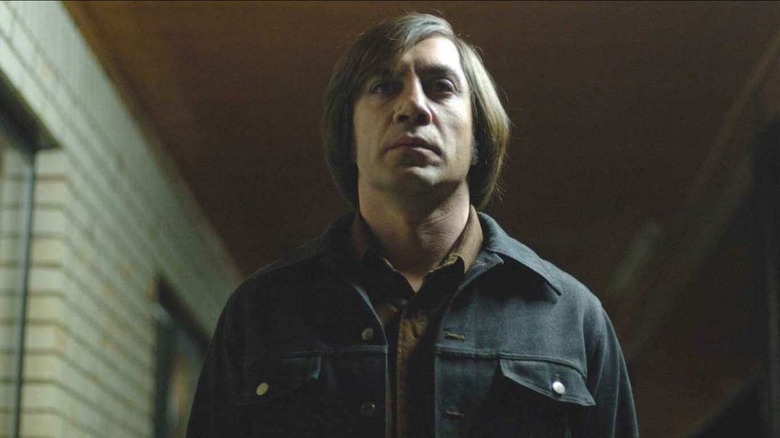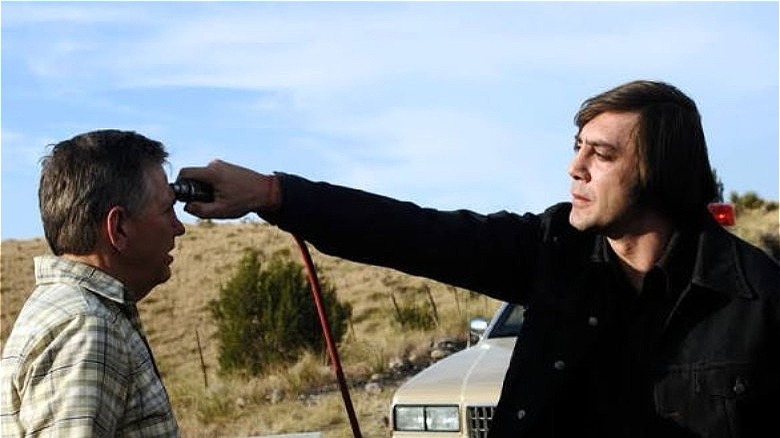The Coen Brothers 'Couldn't Conceive' Of A Less-Violent Version Of No Country For Old Men
"No Country for Old Men" is a bleak film even for the Coen brothers, who are already famous for their unflinching nihilism. Joel and Ethan Coen's filmography is, of course, more vast and varied than just tales of meaningless violence, but their cynical worldview informs even their most light-hearted stories. That's why it seems as if they were born to adapt the equally dreary and brutal works of "No Country for Old Men" author Cormac McCarthy without shying away from their shared thematic preoccupations.
Both the Coens and McCarthy are known in their respective fields of cinema and literature as two of the modern American greats, their narratives often endowed with a level of shocking violence that reduces humanity down to its most base and savage. Despite this, their works always include an underlying existentialism that question the limits of individual choice and agency, as well as the potential for good and evil in all. The Coens and McCarthy also share a fixation on the Western genre and landscape, criticizing an idealized version of the American West while using the setting to contrast the vast natural beauty with lawlessness and chaos. "Blood Meridian," arguably the novel that best encapsulates McCarthy's style, displays the relentless cruelty in the outlaws that helped shape the culture of Old West, along with the lack of justice that encouraged their monstrous behavior. Similarly, "No Country for Old Men" shows a newer, modern West that nevertheless has struggled to move on from the past barbarity that still defines its nature.
Suffice it to say, a Coens-directed "No Country for Old Men" movie adaptation was always going to be a brutal, violent affair, as the brothers themselves would tell you.
Meaning within meaninglessness
As fans of Cormac McCarthy's style, the Coens wanted to remain as faithful to the original novel as possible while crafting their adaptation of "No Country for Old Men." That meant adhering to the same level of stark violence in order to communicate the same nihilistic themes. As Joel Coen explained in a video about the making of the film, the violence is crucial to connecting with the story's characters, who are themselves trying to rationalize an irrationally cruel, unjust environment:
"There's a lot of violence in the book, and it's very important to the story, and we couldn't conceive of sort of soft-pedaling that in the movie... And we wanted to make sure that [producer] Scott [Rudin] was on the same page with that. Of course he was, I mean he wanted to make the book, he didn't want to make some sort of studio Hollywood version of 'No Country for Old Men.' It's about a character confronting a very arbitrary, violent, brutal world, and you have to see that, you see it in the story as it's written and you have to see it in the movie in order to understand anything, I think, about what they're about, and what they're confronting, and what they're trying to make sense of."
"No Country for Old Men" is perhaps one of the best examples of how to depict extreme violence without resorting to cheap shock tactics. There's a suffocating dread that escalates throughout the film as the audience realizes how easy it is for an ordinary person to drift that close to futile suffering in a chaotic world with no set rules or divine justice. An adaptation of "No Country for Old Men" with toned down violence would have ironically been pointless in arguing how pointless violence truly is.

